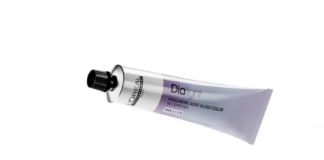It is well known that what you eat can affect your health, energy and well-being in many ways. The most important characteristic of a good diet is variety. We all know that variety is the spice of life. A balanced diet includes a variety of foods that are a source of important vitamins, minerals and other nutrients. Eating the right mix of vitamins and minerals will help you feel and look your best at any age.
- The rule of colourful meals
To make sure your diet plan contains all the nutrients you need, choose a rainbow of colourful foods. The pigments that give foods their colour are also the nutrients that can reduce the risk of cancer and chronic diseases.
Of course, the foods with the most “pigment” are mainly fruits and vegetables. So here’s another reason to fill your plate with these super foods that are full of fibre and low in calories and fat. Fruits and vegetables can reduce free radicals – unstable molecules in the body that damage cells and are thought to contribute to the development of many diseases.
- Vitamins and Antioxidants
A diet rich in antioxidants has been linked to a range of health-promoting and disease-fighting activities in the body. Antioxidants (E, C and A, along with selenium) and vitamin D are also known to help fight nasty free radicals – the cause of many diseases.
Here is a list of antioxidant-rich foods:
- Vitamin A and beta-carotene: Pumpkin, carrots, spinach, sweet potatoes, melons, dark green leafy vegetables and mangoes.
- Vitamin C: Citrus fruits, strawberries, peppers, cauliflower, broccoli, tomatoes, sweet potatoes, asparagus.
- Vitamin E: Vegetable oil, almonds, whole grains, wheat germ, sweet potatoes.
- Selenium: Salmon, cod.
Studies have shown that people living in northern countries may have low levels of vitamin D. Without enough vitamin D, your body cannot absorb calcium properly. According to a recent Swiss study, older people can reduce their risk of injury from falls with vitamin D supplementation. The best source of vitamin D is, of course, the sun.
Other good resources include:
- Orange juices. Juice companies are now adding both calcium and vitamin D to their products for better absorption.
- Salmon and mackerel
- Eggs

